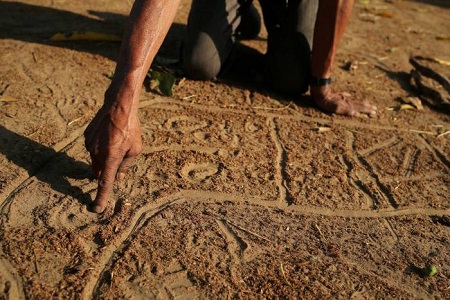From Indonesia to Puerto Rico, communities are using open source tools to help contain the coronavirus by mapping handwashing stations and those at risk.
The pandemic has underlined the importance of maps, that remain inaccurate and incomplete in many parts of the world, leaving more than one billion people “invisible,” activists say.
“Incomplete or inaccurate maps can cut off entire communities from essential services and government assistance,” said Harry Machmud, who heads the Humanitarian OpenStreetMap Team (HOT) in Indonesia.
Over in Zimbabwe activists are spreading awareness about a new Supreme Court law that entitles married couples to an equal share of their property upon divorce, and encouraging women - especially in rural areas - to register their marriages.
“Before this new law, women only got things like chairs, kitchen units and the husband would get real property which mattered most, like cars, livestock and (houses), said Memory Chindewere, an activist.
Governments` failure to recognise indigenous land rights and their role in protecting biodiversity could lead to more coronavirus-like pandemics, a report by the Rights and Resources Initiative (RRI) found this week.
Despite compelling evidence that indigenous peoples, local communities, and Afro-descendants protect most of the world`s remaining biodiversity, they are under siege from all sides, said Andy White of the RRI.
In northern Turkey, deadly floods have sparked fresh warnings about unchecked development in the country`s coastal cities.
Everything is gone. I couldn`t get back to the shop that night because the rain was so heavy. But it`s a good thing I didn`t, or I`d be dead now,” said Mahmut Talic, whose hardware shop was destroyed last month.
Poorly planned urban development combined with the effects of climate change has left Turkey’s Black Sea region with its population of more than 7 million highly vulnerable to floods, environmental experts say.
Photo: The chief of the Manoki indigenous people points to the location of his people`s land that was burnt, on a map drawn in dirt in Mato Grosso state, Brazil, 27 August 2019. Source: Amanda Perobelli/Reuters.














